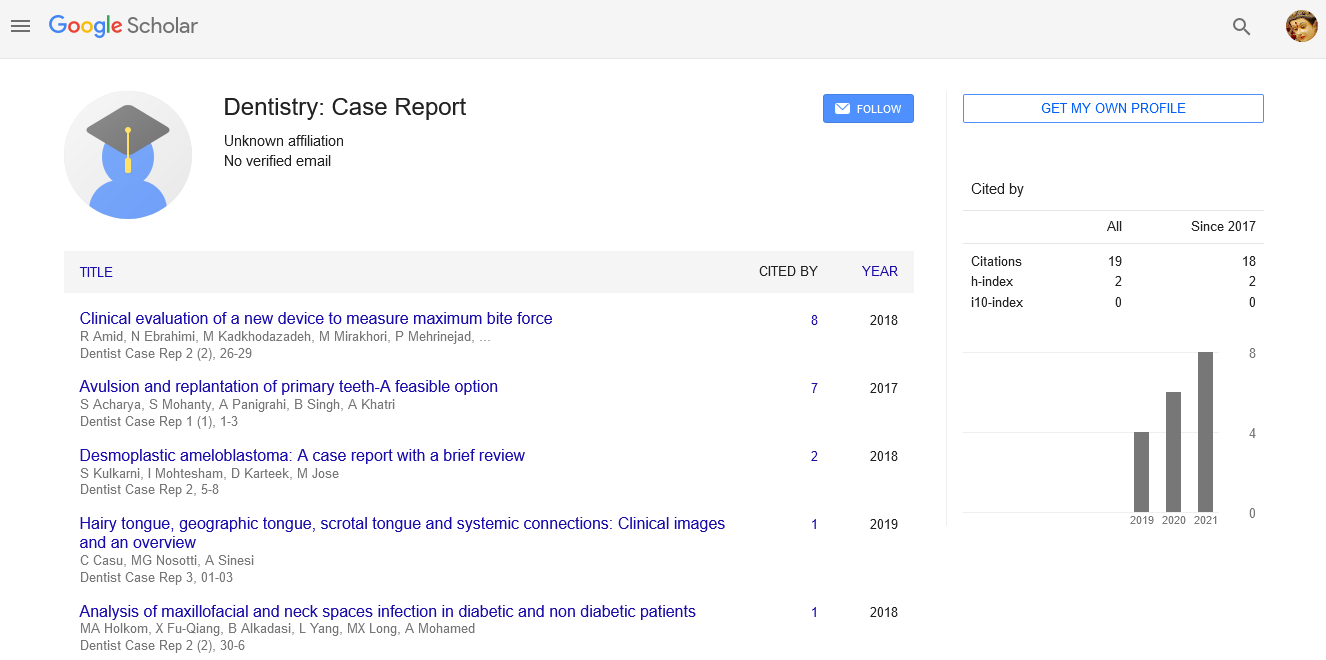Sign up for email alert when new content gets added: Sign up
Management of oral health care in dementia patients
Joint Event on 27th EURO DENTISTRY CONGRESS & 27th Global Summit Expo on DENTAL SCIENCE AND DENTAL PRACTICE
July 15-16, 2019 | London, UK
Jinesh Thakrar
Hertfordshire Community NHS Trust, UK
ScientificTracks Abstracts: Dentist Case Rep
Abstract :
Dementia is a progressive neurological disorder whereby patients experience cognitive impairment, memory loss and a reduced ability to perform regular daily activities resulting in their oral health to rapidly deteriorate. Hence, early intervention and meticulous planning is paramount to reducing their susceptibility to oral diseases.
With an ever-expanding and aging population, Dementia is becoming a far more common occurrence. In 2015, 850,000 people lived with the disorder in the UK, with it expected to grow to over 2 million by 2051. It currently costs a huge £26.3 billion a year of which £4.3 billion is related to NHS health care.
As dentists, we often see patients on a regular basis and we are in a unique position to pick up on early signs and symptoms of dementia; regular attendees failing to attend appointments, forgetting previous conversation or repetition of questions.
All of which could indicate a decline in their memory and cognitive ability. We would then also have a duty to sensitively encourage patients to seek further investigations or refer appropriately with appropriate consent and provide an oral care plan.
Patients often have difficulties with their chewing, unstable dentures and bruxism, compounded with the added side effects of their medication including xerostomia leading them into a spiral of problems.
The condition presents its own ethical issues around consent. Discussing and recording an oral care plan in the early stages can help provide guidance for families and carers further down the line and reassures patients that when their condition progresses their wishes will be taken into consideration.
The biggest challenge comes in the middle to later stages where treatments and oral care is shifted towards prevention rather than active treatment to achieve a stable and functional dentition. A well-tailored approach will allow the patients to maintain their appearance and dignity.
Biography :
Thakrar has a passion for improving and maintaining oral health for special needs patients and has specifically noticed a common challenge in providing oral health to dementia patients. Working for a special care dental service, he regularly provides domiciliary dental care and oral health education to residential care homes, where a large proportion of patients suffer from dementia. Through his experiences and reading on the subject, he has combined an approach to empower other dentists and family members to provide oral health care with a practical structured plan and a holistic approach.
E-mail: Jineshthakrar@hotmail.com





